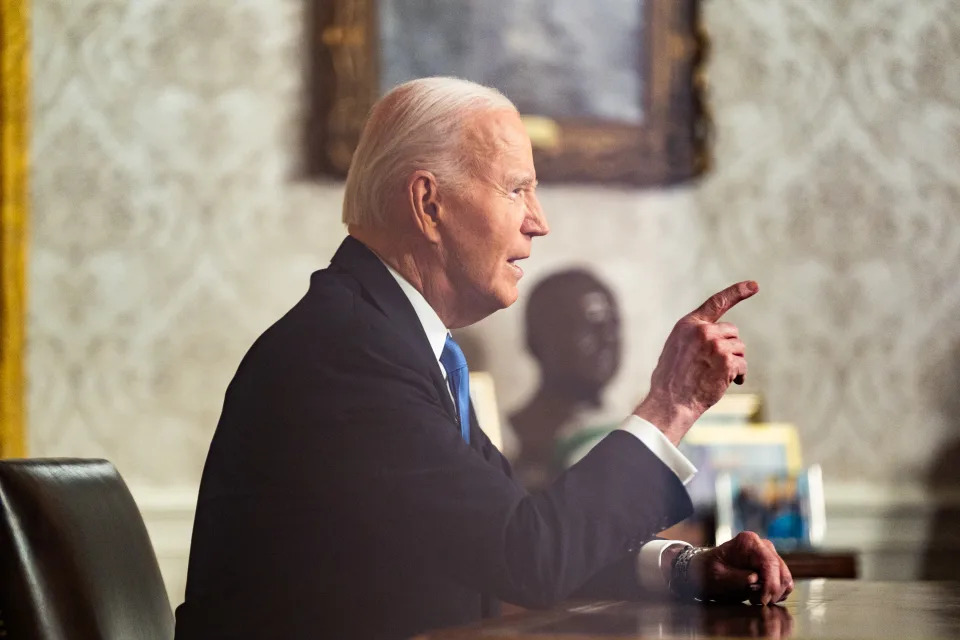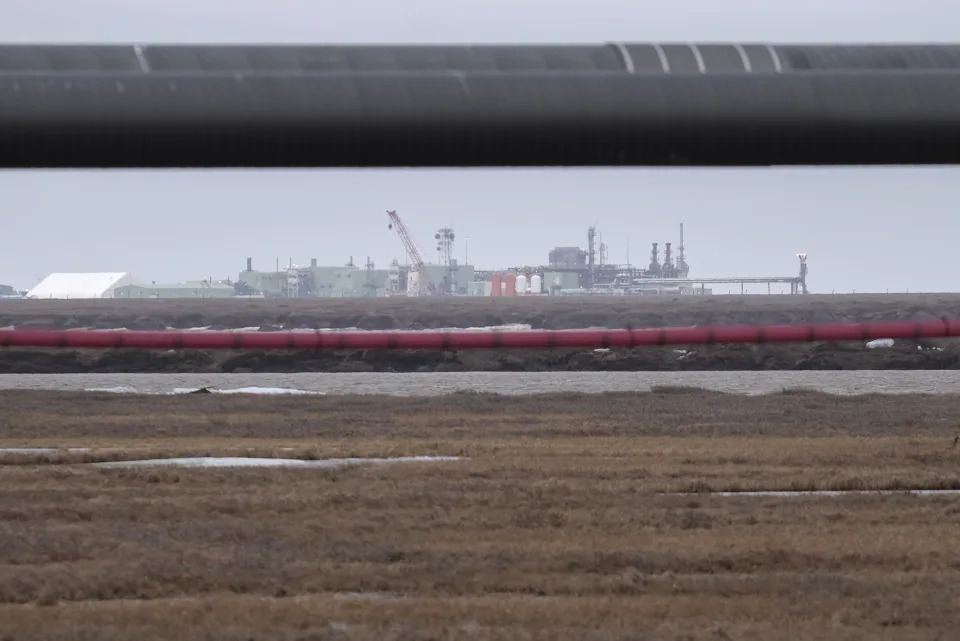(Bloomberg) — The Biden administration advanced a plan to limit oil ( CL=F , BZ=F ) drilling and infrastructure across more of Alaska’s National Petroleum Reserve, a bid to lock in land protections and conservation requirements days before President-elect Donald Trump takes office.
The Interior Department move Thursday represents the latest step by outgoing President Joe Biden to enshrine protections that could complicate Trump plans to rapidly expand oil and gas development across US federal lands and waters. In recent weeks, Biden also has designated new national monuments and ruled out the sale of drilling rights in more than 625 million acres of US coastal waters.

In the latest action, the Interior Department is proposing new “special area” designations that would restrict drilling and other activities across more than 3 million acres of the Indiana-sized reserve in northwest Alaska. The move comes on top of on an existing policy, finalized last year, that barred drilling across nearly half of the NPR-A.
The rugged terrain once earmarked for energy development contains an estimated 8.7 billion barrels of recoverable oil, but it’s also an important habitat for caribou, grizzly bears and migratory birds. And it’s a prized resource for Alaska Natives who have long relied on the land for subsistence hunting and fishing.
The Interior Department immediately imposed measures meant to avoid damage to those areas even while they’re being considered for protection, effectively raising hurdles for building roads and other infrastructure across the tracts.
“The Biden administration clearly understands that the oil and gas industry is not entitled to these precious public lands and is taking steps to ensure they survive,” said Bobby McEnaney, director for land conservation at the Natural Resources Defense Council.
Environmentalists said they hoped the effort would create a bulwark against Trump’s plan to unleash American oil development.
Although Trump could cast aside his predecessor’s proposed special areas and ignore the interim safeguards imposed in the meantime, the action could be challenged in federal court. The report and memo unveiled Thursday bolsters the government record for those safeguards, providing potential fodder for any future legal battle.
The move could have implications for companies that have had holdings or interests in the reserve, including ConocoPhillips ( COP ), Santos Ltd ( SSLZY ), Repsol SA ( REP.VI ) and Armstrong Oil & Gas Inc.
Although the Interior Department’s actions do not affect valid, existing rights within the NPR-A, the recommended special areas overlap with current leases, including some held by ConocoPhillips and Oil Search Ltd., which was acquired by Santos in 2021. And they encroach on territory around ConocoPhillips’ 600-million-barrel Willow oil development.
The targeted areas effectively “form a donut of protections around the Willow project,” said Athan Manuel, director of the Sierra Club’s Lands Protection Program.

The initiative was blasted by oil advocates, including Senator Lisa Murkowski, a Republican from Alaska, who said on X the Biden administration had “willfully ignored federal law to try to convert the National Petroleum Reserve-Alaska into de facto federal wilderness.”
ConocoPhillips Alaska decried what it called an “11th-hour effort to impose interim measures by the outgoing administration.” They’re based on an “unlawful” regulation that’s already being challenged in federal court, is depriving local stakeholders influence over the NPR-A and “should immediately be rescinded,” the company said in an emailed statement.
The Interior Department received tens of thousands of comments after asking the public to nominate parcels for protection last year.
The 23-million-acre site was first set aside for oil supply needs roughly a century ago. When Congress authorized its commercial development in 1976, lawmakers said the government should ensure “maximum protection” for some areas of it.






